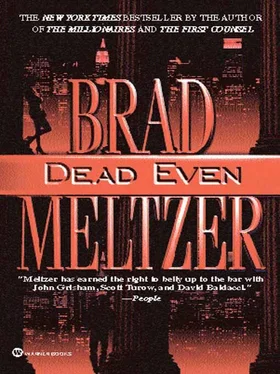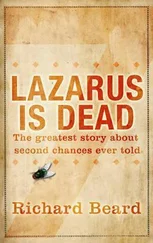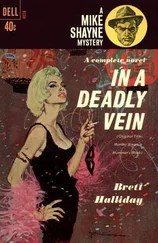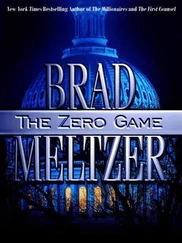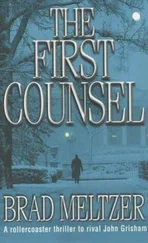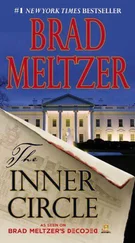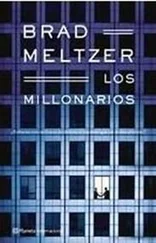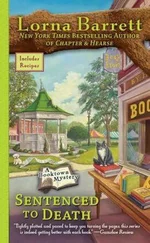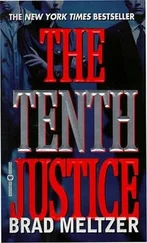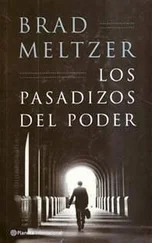“I… I think so,” Sara muttered. All she tried to think of was the freshness of her spearmint gum.
“Good – because I was lying. This is the worst part.” He put down his scalpel and picked up four-foot-long stainless steel cutting shears. “For a gardener, it cuts heavy branches; for me, it’s just as good on old bones.” He then went to work on Doniger’s ribs, cutting through the lowest ribs and working his way up. Each crack was like a wooden bat against a baseball. To clean it up, he drew the breastbone away from the heart, then pulled away five ribs that were lodged in the diaphragm.
“Spearmint gum, spearmint gum, spearmint gum,” Sara whispered to herself.
When the ribs were gone, Fawcett took a survey of the now easy-to-reach organs. “Nice,” he said, seeming pleased. “They didn’t trocar him much. Most of it’s intact.” Turning to Sara, he added, “What’d you say she fed him the night he died?”
“Apple juice and a granola bar. Why?”
Fawcett leaned into the open body, took his scalpel, and sliced around Doniger’s stomach. Satisfied with his cuts, he slid his hands under the organ, lifted the stomach, and put it into a nearby metal pan. He then looked back at Sara. “Because we’re going to peek inside and see for ourselves.”
Three and a half hours later, on the last piece of her second pack of gum, Sara left the autopsy room. She watched through the door as Fawcett pulled a sheet over the body, then made some final statements into his recorder. When Fawcett joined her, she could barely contain her excitement. “What’d you think?” she asked eagerly. “Is it a murder?”
“I can only give you facts – you draw your own conclusions.”
“That’s great, but I’ve spent the last three and a half hours listening to you talk about anterior chambers and aqueous equilibration. I need you to put it in plain English. Did Arnold Doniger die in a coma caused by his diabetes?”
“As near as I can tell, yes,” Fawcett said as they took off their gowns. Well accustomed to Conrad’s black-and-white approach to answering questions, Sara was frustrated by Fawcett’s conditional responses. “The relevant question now is: Was the death natural or was it caused by a third party?”
“I don’t understand,” she said as they headed back to his office.
“There’s enough information to support both – you just have to decide which scenario is more logical. According to the decedent’s wife, her husband was cranky, so she gave him some apple juice and a granola bar. When you’re a diabetic, the crankiness is caused by low blood sugar. To raise your blood sugar, you commonly have some form of caloric intake – an apple, a cookie, something like that. And if the food makes your blood sugar too high, you ordinarily take an insulin shot to lower it. At least, that’s generally the case.”
“So food brings your blood sugar up, and an insulin shot brings it down.”
“Correct,” Fawcett said as he stepped into his cluttered office and headed directly for the overcrowded bookshelf on the far wall. As he looked for a particular book, he continued, “And if you give yourself a shot when your blood sugar is low, the shot will bring it down even further and you’ll fall into a coma or have a stroke. Essentially, we know his blood sugar was low at the time of the shot, because it caused him to go into the coma. The trick is finding out what his blood-sugar level was hours before the shot.”
“How do we do that?”
“As I said, that’s the trick. Remember the Claus von Bülow case? Detecting blood sugar levels to prove a murder is a difficult game. It’s an almost undetectable crime.”
“What do you mean ‘almost’?” she asked, trying to drag concrete answers out of him.
“Ah, here we go.” Fawcett pulled a small white textbook from the shelf. As he scanned a few pages, he rubbed his right earlobe between two fingers. Eventually, he explained, “According to traditional practice, a few hours after someone dies, you can’t tell their blood-sugar level. It’s undiscernible in most of their body. But if you subscribe to some of the superior medical journals – which were recently sliced from our budget – you’d know that it’s still detectable in one place: the anterior chamber of the eye.”
“Are you telling me that when you were dissecting Arnold’s eyes, you were actually measuring his blood-sugar level?”
“Science can only give you the facts if you know where to look,” Fawcett replied. “Equilibration in the eye is very slow, so the fluids of the eye don’t match the fluids of the rest of the body. As a result, while the fluids in your body may dissipate, the fluids in your eye linger and leave a mark that’s as clear as a fingerprint – which allows us to track the body’s blood-sugar levels.”
“And what did Arnold Doniger’s eyes say?” she asked anxiously.
“They said his blood sugar was normal, but you have to remember that the eyes are always a little bit behind the rest of the body. Which means that if he died of low blood sugar, which is strongly suggested by the autopsy results, his blood sugar dropped precipitously in the end.”
“But doesn’t that support Claire’s story that his blood sugar was low and that that’s why she gave him the juice and the granola bar?”
“Don’t lose sight of the facts. You saw what was in his stomach – there were no signs of food. He hadn’t eaten for several hours.”
“So they starved him, and then when his blood sugar was low enough, they gave him a shot of insulin and finished him off?”
“Or they gave him an overdose of insulin. That’s if a third party caused the death. Either way, it’s a wonderful way to kill someone. As a pathologist, even if I’m diligent enough to check the eyes, it’s still difficult to reach a solid conclusion. Whoever did this, you have to admire their ingenuity.”
Sara nodded. “What about pinpointing the time of death? According to my theory, he died about four days earlier than his wife says. Any way to prove that?”
“That’d be simpler if he was a fresh kill, but he’s been in the ground for almost a week. Were there any odd smells reported by the paramedics when they came to get the body?”
“I don’t think so, but I’ll ask,” Sara said. “Anything else suspicious?”
“Actually, there was some tearing in the lining of the brain, which is sometimes the result of intense cold or freezing temperatures. But since the brain is now mostly a mass of decomposed mush, I’m not convinced that’s what caused it. It did strike me as odd, though.”
As she processed the information, Sara glimpsed Fawcett’s clock; it was almost eleven forty-five. “I’m late,” she blurted, leaping out of her seat. As she rushed to the door, she added, “Let me ask you one last question: Do you think your findings are convincing enough to prove that Arnold Doniger was murdered?”
“You’re the one who draws the conclusions – were you convinced?”
Sara opened the door and smiled wide. “Thoroughly. Now all we have to do is convince the jury.”
Running up the steps of 100 Centre Street, Sara glanced at her watch and cursed the New York City traffic that had held her taxi hostage for the past half hour. It was now almost quarter past twelve, which meant she was already fifteen minutes late for Kozlow’s arraignment. Hoping that Kozlow still hadn’t entered his plea, she darted into the building, through the metal detector, and took the elevator to the eleventh floor. She read room numbers as she ran and headed up the hallway until she reached room 1127. Pausing in front of the courtroom, Sara took a moment to catch her breath. The much-needed minibreak made one thing clear: If she didn’t go to the bathroom soon, she was going to explode.
Читать дальше
